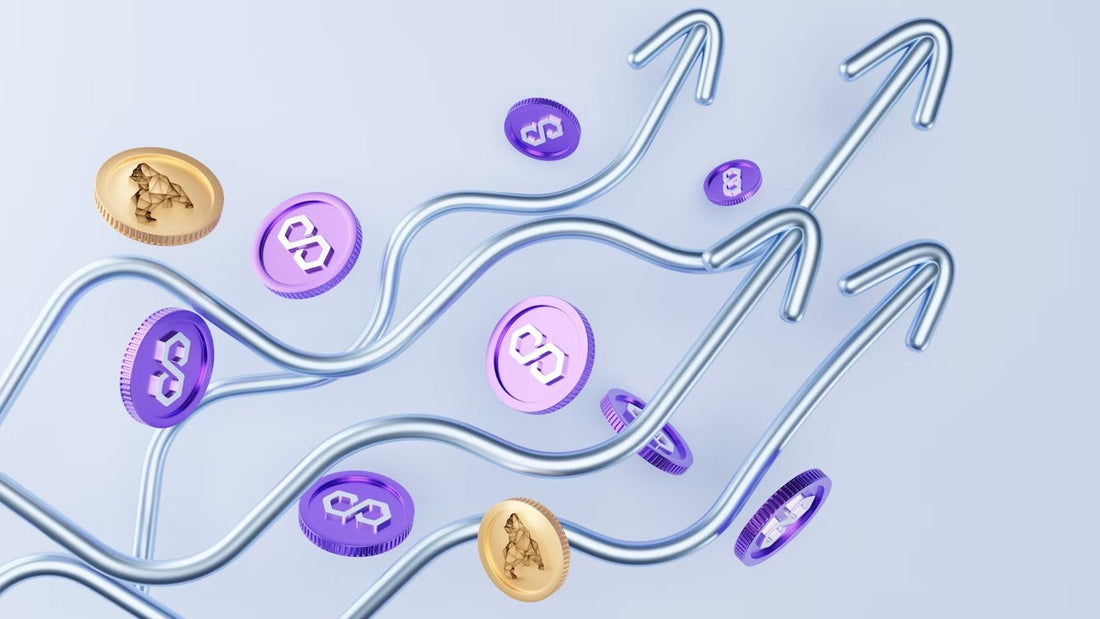Table of Contents:
- Myths About Menstrual Cramps and Period Pain
- Understanding the Causes of Period Pain and Anxiety
- Lifestyle Changes and Practices for Easing Painful Periods
- Fainting During Dysmenorrhea: Why It Happens and How to Manage It
- The Role of Vitamins and Supplements in Menstrual Health
- Anxiety Relief Through Anti-Anxiety Supplements
- Breaking the Cycle of Pain with Magnesium and tart cherry
- Alternative Therapies for Dysmenorrhea Relief
- Self-Care Techniques for Managing Anxiety and Period Pain
- Community and Support Networks
- The Importance of Tracking Symptoms
- Combining Self-Care with Supplements
- Embracing a Holistic Approach
For millions of women worldwide, “that time of the month” isn’t just about dealing with periods—it’s about facing intense cramps, fatigue, and even anxiety. Dysmenorrhea (painful periods) affects 50-90% of menstruating women, with the pain often intense enough to impact daily life. In India, reports show that around 70% of young women experience primary dysmenorrhea, a staggering statistic highlighting the need for better awareness and relief options.
One solution that has shown promise is incorporating natural vitamins for cramps and supplements for anxiety. Products like Magnesium and tart cherry combine magnesium and calming vitamins to target the core of period-related pain and anxiety. This guide explores myths, helpful practices, and lifestyle changes to ease painful periods.
Myths About Menstrual Cramps and Period Pain
1. “Pain is Normal, Just Deal with It”
Many believe that painful periods are just part of womanhood and something to “deal with.” While mild discomfort is common, severe pain (like that seen in dysmenorrhea) is not normal and can indicate issues like endometriosis or fibroids. Listening to your body and seeking relief are essential steps.
2. “Chocolate and Junk Food Will Help”
It’s tempting to turn to chocolate or comfort foods during PMS and menstruation. While chocolate can release mood-boosting endorphins, excessive sugar can cause inflammation and worsen cramps. Moderation is key—opt for dark chocolate and avoid overloading on sugary treats.
3. “Exercise Will Make It Worse”
Exercise may be the last thing you want to do during painful periods, but light physical activity can actually relieve cramps. Exercise releases endorphins, which are natural painkillers. Yoga, stretching, and even a gentle walk can help alleviate discomfort.
Understanding the Causes of Period Pain and Anxiety
Menstrual cramps are primarily caused by prostaglandins, hormone-like substances that trigger uterine contractions. High levels of prostaglandins are linked to more intense pain, often accompanied by nausea, headaches, and digestive issues. The stress of dealing with these symptoms can trigger anxiety, which then amplifies the discomfort. It’s a vicious cycle, but supplements, lifestyle changes, and vitamins can help break it.
Lifestyle Changes and Practices for Easing Painful Periods
-
Incorporate Anti-Inflammatory Foods
- Omega-3 fatty acids, found in fish, chia seeds, and walnuts, have anti-inflammatory properties that can reduce cramping.
- Leafy greens, berries, and nuts are also excellent choices to include in your diet for their vitamin content and inflammation-fighting benefits.
-
Stay Hydrated
- Drinking enough water may seem simple, but dehydration can worsen cramps and bloating. Warm water, in particular, helps relax the muscles and soothe pain.
-
Use a Heat Pad or Warm Bath
- Applying heat to the lower abdomen can relieve tension and reduce pain. Studies show that heat application can be as effective as ibuprofen for relieving cramps.
-
Try Gentle Yoga and Stretching
- Certain yoga poses like the child’s pose, cat-cow stretch, and reclined bound angle pose can ease tension in the lower abdomen and back.
Fainting During Dysmenorrhea: Why It Happens and How to Manage It
For some women, dysmenorrhea goes beyond cramps and discomfort, with symptoms like fainting or dizziness. This can happen due to a few factors:
- Severe Pain: Intense cramps can trigger a vasovagal response, where the body’s reaction to pain causes blood pressure and heart rate to drop, leading to fainting.
- Low Blood Sugar: Skipping meals or a lack of appetite during menstruation can lead to low blood sugar, contributing to dizziness and fainting.
- Prostaglandin Surge: High prostaglandin levels can cause severe contractions in the uterus, potentially affecting blood flow and contributing to fainting.
Managing Fainting Episodes
- Stay Hydrated and Eat Small Meals: Staying hydrated and eating balanced meals can help maintain blood sugar levels and reduce dizziness.
- Supplements Like Magnesium and tart cherry: Magnesium and B-Vitamins support blood flow and can help stabilize blood pressure, potentially reducing fainting spells.
-
Gentle Movement and Rest: Avoid sudden movements and give your body rest to prevent dizzy spells during painful periods.
The Role of Vitamins and Supplements in Menstrual Health
Certain vitamins and minerals are particularly effective in managing menstrual cramps and anxiety. Magnesium and tart cherry is an example of a supplement that combines several of these key nutrients, providing support for both physical and mental well-being during menstruation. Here’s a look at some of the most impactful vitamins for cramps and anxiety relief:
Magnesium
Magnesium has a powerful role in muscle relaxation and blood flow, making it a natural choice for menstrual relief. Studies show that magnesium supplementation can reduce pain intensity and duration. Magnesium also helps lower cortisol, the stress hormone, providing a calming effect.
Vitamin B6
Vitamin B6 is linked to serotonin production, which is crucial for stabilizing mood and reducing anxiety. By enhancing serotonin levels, Vitamin B6 can lessen the irritability, anxiety, and low mood that accompany PMS.
Vitamin E
Known for its antioxidant properties, Vitamin E reduces prostaglandin levels, which can decrease the severity of cramps. A study revealed that women who took Vitamin E supplements reported significant pain relief compared to those who didn’t.
Anxiety Relief Through Anti-Anxiety Supplements
Periods can be emotionally taxing, and high levels of estrogen and progesterone fluctuations can impact mental well-being, leading to anxiety. In fact, nearly 30% of women report higher anxiety levels in the days leading up to their period. Here’s where anti-anxiety supplements can make a difference.
L-Theanine
L-Theanine, found in tea leaves, promotes relaxation without sedation, easing stress and helping balance mood swings. Many women find that supplements with L-Theanine provide a gentle, natural form of anxiety relief.
Ashwagandha
Ashwagandha is a popular adaptogen that helps the body manage stress. Studies indicate that Ashwagandha reduces cortisol levels, helping to alleviate the “jitters” and emotional ups and downs associated with PMS.
GABA
GABA (Gamma-Aminobutyric Acid) is a neurotransmitter that reduces excitability in the nervous system, promoting calmness. It’s often referred to as the brain’s natural “chill pill” and can help with both menstrual anxiety and insomnia.
Studies reveal that 80% of menstruating women worldwide experience discomfort during their cycles, with nearly 20% affected by severe dysmenorrhea impacting daily life. In India, 70% of young women report menstrual cramps, leading to frequent school absences, reduced productivity, and mental health struggles. Additionally, 1 in 3 women report increased anxiety during their cycles, underscoring the urgent need for holistic solutions. Products like Magnesium and tart cherry, combining cramp-relieving and anti-anxiety nutrients, offer accessible relief, enabling women to manage both physical and emotional symptoms effectively.
Breaking the Cycle of Pain with Magnesium and tart cherry
DameHealth’s Magnesium and tart cherry is designed specifically for women who struggle with painful periods and anxiety. Packed with Magnesium, Vitamin B6, and other supportive nutrients, Magnesium and tart cherry offers a two-fold benefit: reducing cramps and promoting relaxation. By targeting both physical pain and mental stress, Magnesium and tart cherry can help you regain control over your menstrual cycle.
Magnesium and tart cherry addresses several needs:
- Cramp Relief: Magnesium and Vitamin E work together to relax muscles and reduce prostaglandin production, directly targeting the root cause of cramps.
- Anxiety Support: With the addition of calming nutrients like Vitamin B6, it helps balance mood and stabilize serotonin levels.
-
Stress Reduction: Ingredients like Ashwagandha help you manage stress naturally, breaking the cycle of pain and anxiety that often accompanies periods.
Alternative Therapies for Dysmenorrhea Relief
While lifestyle changes and supplements like Magnesium and tart cherry can be immensely helpful, some women find relief through alternative therapies. Here are a few that have shown promise:
- Acupuncture: Studies have demonstrated that acupuncture may reduce the intensity and duration of menstrual cramps. By targeting specific pressure points, acupuncture may help relax muscles, improve blood flow, and reduce pain perception.
- Aromatherapy with Essential Oils: Essential oils like lavender, clary sage, and peppermint have calming and anti-inflammatory properties that can help with cramping. Gently massaging these oils (diluted in a carrier oil) onto the abdomen or using them in a diffuser can help relieve anxiety and promote relaxation.
- Herbal Teas: Teas made with herbs like chamomile, ginger, and peppermint can soothe cramps and ease digestive discomfort that often accompanies menstruation. Chamomile, in particular, is known for its calming effects and may help reduce both cramps and period-related anxiety.
Self-Care Techniques for Managing Anxiety and Period Pain
Periods aren’t just a physical experience—they often come with emotional and mental challenges. Here are some self-care practices to help you feel more in control:
- Journaling and Mindfulness: Tracking your period symptoms in a journal can provide insights into patterns of pain and anxiety, helping you proactively manage them. Practicing mindfulness through breathing exercises or meditation can further help calm the nervous system, reducing both pain and anxiety.
- Setting Boundaries and Slowing Down: It’s important to honor how you feel during your period. Reducing commitments and setting boundaries can be powerful tools for coping with both physical and emotional symptoms. Allow yourself time to rest, and don’t feel guilty about saying no to social engagements or extra work.
- Gentle Exercise and Stretching: While rigorous workouts might feel too intense during your period, gentle movement—like stretching, yoga, or walking—can release endorphins and improve circulation, helping reduce cramps and lift your mood.
Community and Support Networks
Menstrual pain and anxiety are common, yet talking about them openly is still often considered taboo. Building a support network can have a significant impact on managing dysmenorrhea and the emotional side of menstruation. Many women find relief in knowing that they aren’t alone and that others understand what they’re going through.
- Join Online or Local Groups: Online communities, social media groups, and forums focused on menstrual health can be excellent resources for shared experiences, coping strategies, and emotional support.
- Connect with Friends and Family: Sharing your struggles with close friends or family members can also provide comfort. You might be surprised how many people around you understand or have gone through similar experiences.
- Consulting with Healthcare Professionals: Period pain and anxiety are very real and shouldn’t be ignored. Don’t hesitate to reach out to healthcare providers if your symptoms are affecting your quality of life. Whether it’s a doctor, therapist, or dietitian, professionals can offer valuable insights, coping strategies, and treatment options.
The Importance of Tracking Symptoms
One of the most effective ways to manage dysmenorrhea and menstrual anxiety is to track your symptoms. Understanding how your body responds to certain foods, supplements, and lifestyle changes can help you create a plan tailored to your unique needs. Apps and journals designed for cycle tracking allow you to monitor pain levels, mood changes, and even supplement effectiveness.
- Identifying Triggers: Tracking can help you identify if certain foods, stress levels, or activities are linked to more intense symptoms. This knowledge can empower you to adjust your routine around your cycle to minimize discomfort.
- Empowering Discussions with Healthcare Providers: Detailed records of your symptoms help healthcare providers make informed recommendations, whether it’s suggesting anti-anxiety supplements, adjusting your exercise routine, or guiding you on vitamins for cramps.
Combining Self-Care with Supplements
Integrating lifestyle changes and supplements like Magnesium and tart cherry can offer a comprehensive approach to menstrual health. Magnesium and tart cherry not only provides physical relief with magnesium and Vitamin B6 but also targets stress and emotional well-being. This combination supports women in breaking the cycle of pain and anxiety with a holistic approach.
Taking small, consistent steps to care for your body and mind is key to creating a more positive experience with your menstrual cycle. The right blend of supplements, self-care, and community support can truly make a difference in how you navigate the challenges of dysmenorrhea and anxiety.
Embracing a Holistic Approach
Managing dysmenorrhea and anxiety during periods is about finding a balance between lifestyle changes, effective supplements, and self-care. By incorporating anti-inflammatory foods, staying hydrated, and using targeted vitamins for cramps, you’re equipping your body to handle the challenges of each menstrual cycle more effectively.
Products like Magnesium and tart cherry empower women to take control of their menstrual health, addressing both physical and emotional well-being. It’s time to put an end to the “just deal with it” mentality around periods and embrace solutions that work for you.





